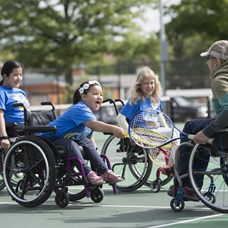Better Together
Breaking Chains Academy of Development helping teens with the support of St. Luke’s
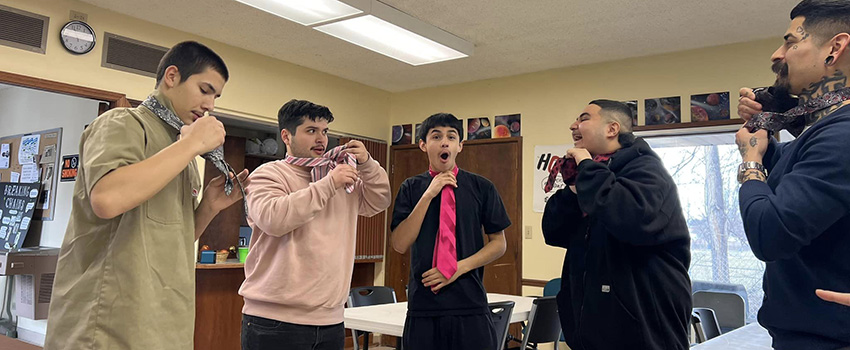
“I’ve been everywhere, and nothing is working.”
According to Luis Granados, executive director of Breaking Chains Academy of Development (BCAD), that is what nearly every young person says the first time they meet.
The Nampa-based nonprofit and Community Health Improvement Fund (CHIF) grant recipient provides tutoring and General Education Development (GED) prep, mentorship, healthy foods and snacks, hygiene products and a safe place to relax and hang out for teens ages 13 to 18, primarily from Canyon County.
Many students come to the program from juvenile corrections but others are referred by their school or a friend in the community worried about academic performance and behavioral and social challenges.
“When you see these kids displaying antisocial behaviors, it's due to a root cause,” Granados said.
The cause often is from trauma both inside and outside the home.
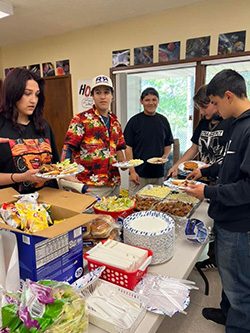
ACEs, or adverse childhood experiences, are events or living conditions that children encounter that cause trauma. Typically abusive, ACEs can range from physical or mental violence, neglect or serious household dysfunction to more common challenges such as divorce or mental illness. It can also occur at the community level as discrimination, poor housing and violence or gang activity.
While most people experience at least one ACE, multiple ACEs are associated with an increased risk of mental, emotional and physical conditions and disease.
“These kids are showing up with high, through-the-roof ACE scores,” said Granados. “If those don’t get addressed, they can have serious long-term effects.”
Six or more ACEs become predictive of and, if unmitigated, are associated with at least five of the top 10 leading causes of death. A person with just four or more ACEs, as determined by a simple screening, had a four-to-12-time increase in health risks for alcoholism, drug abuse, depression and suicide rates. They also tend to experience higher rates of tobacco use, increased likelihood of obesity and more prevalence of diseases such as heart disease, cancer and chronic lung disease.
As these experiences go unaddressed, a cycle emerges. These students can become adults who are more likely to experience chronic physical and mental illness, increasing the cost of care for themselves, their families and providers and reducing the overall health and wellness of the community. They’re also more likely to perpetuate adverse experiences through their own parenting practices and lifestyle choices.
“That’s why we’re named Breaking Chains Academy because it’s all about breaking traumas,” Granados said.
Positivity builds resiliency
Understanding that building resilience through positive childhood experiences (PCEs) is the best mitigator of ACEs and their associated negative health outcomes, St. Luke’s provides financial resources to programs and organizations, like Breaking Chains, that address upstream determinants of health.
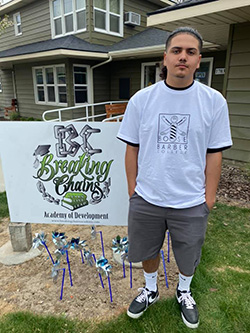
For the students at Breaking Chains, the program doesn’t simply intervene to redirect students’ behavior and help them finish school. It provides protective support and positive experiences to change the trajectory of their lives.
“It’s important to remember that all of those entering BCAD’s door are still kids,” said Jean Mutchie, St. Luke’s community health manager and BCAD board member.
“Their journey may look different than that of others, but they still possess limitless potential and possibility. They often just need someone to believe in them, reinforce their value and meet them where they are.”
Jose Hernandez is one of many students that BCAD has helped find a new path.
Granados met Hernandez after school in the middle of a fight.
“I introduced myself and told him what we do,” Granados said. “I gave him my card and told him he could reach out if he wanted help. He reached out.”
Hernandez enrolled in a GED program and enjoyed the safe place to hang out, with the chance to socialize and develop community. After finishing his GED, and with referrals from Granados and a member of the St. Luke’s Community Health and Engagement team, he received a full-ride scholarship to Boise Barber College.
The path to this outcome wasn’t without obstacles though.
Before attending Boise Barber College, Hernandez was involved in an altercation and was shot multiple times. Along with expensive medical care, he also faced jail time.
Fortunately, with positive character statements by members of Breaking Chains and Boise Barber College, Hernandez secured a lesser punishment.
He’s now a full-time barber.
Breaking chains
Because the social and environmental factors that cause initial antisocial behaviors often don’t just disappear when they enter the program, it’s not uncommon for students, like Hernandez, to find themselves confronting old cycles multiple times.
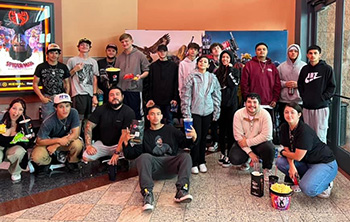
“Based upon their own experiences, or that of someone close to them, many of these kids are skeptical of traditional systems and adults,” Mutchie said. “They often feel let down and left behind. They need advocates, and they need consistent adults in their lives, demonstrating through action, the commitment to helping them change their odds and build a better future.”
Breaking Chains, with its wrap-around resources, provides consistency and community to disrupt cycles.
“We know an investment in our youth is an investment in our community and in our future. It’s more than an individual issue. It’s a health issue as a whole and that’s what we’re trying to solve,” said Granados.
St. Luke’s answers the call to support the health of the community by investing in partners, like Breaking Chains, as they positively influence the lives of young people in the community.
About The Author
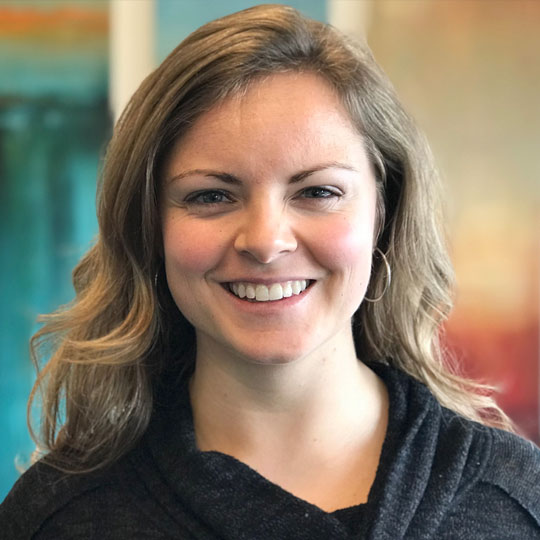
Alexis Bennett is a consultant for St. Luke's Center For Community Health.

